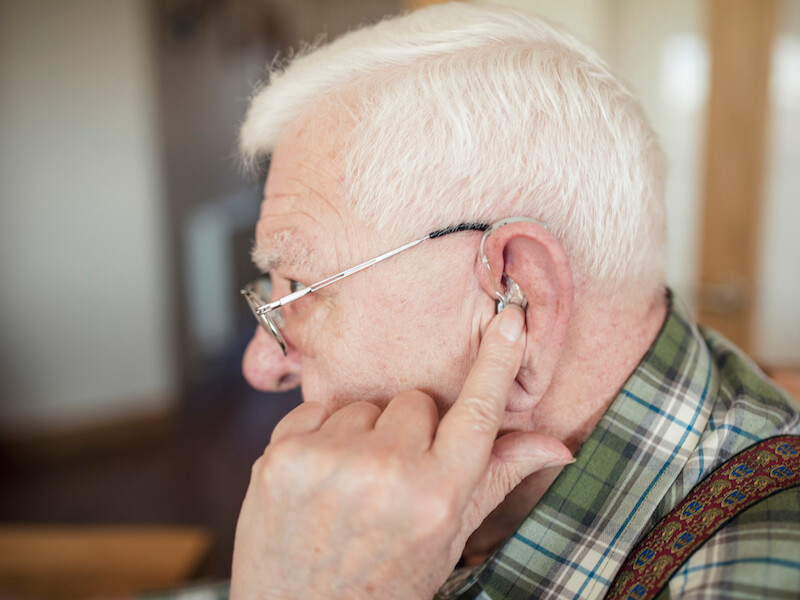
Does it seem as if your hearing aid batteries lose their charge too fast? The reasons for this can be sometimes unexpected.How long should hearing aid batteries last? Anywhere from 3 to 7 days is standard. That’s a very wide range. So wide, actually, that it’s unpredictable and leaves you in a significant predicament. You may be on day 4 at the grocery store when all of a sudden, things go quiet and you’re unable to hear the cashier. Or it’s day 5 and you’re enjoying a call with friends when all of a sudden you find yourself feeling very alone because you can no longer follow the conversation. Occasionally the batteries don’t even make that 3 day mark. Like when you’re watching TV on day 2 and all of a sudden you can’t hear the show your that’s on. It isn’t just annoying. You’re missing out on life because you’re not sure how much battery power is left in your hearing aids. If your hearing aid batteries are dying too rapidly, there are a small number of likely causes.
Moisture Can Deplete a Battery
There aren’t many species that produce moisture through their skin but humans do. We do it to cool off. We do it to get rid of excess toxins or sodium in the blood. You may also live in a climate that’s moist and humid. The air vent in your hearing aid can get clogged by this extra moisture and it will be less effective. It can even drain the battery directly by interacting with the chemicals that produce electricity. Here are a few steps you can take to avoid moisture-caused battery drain:
- Get a dehumidifier for your hearing aids
- Open the battery door before storing the hearing aids
- Don’t keep your hearing aids in the bathroom, kitchen or other damp environments
- Don’t leave the batteries in when you’re storing them for several days
Batteries Can be Depleted by Advanced Hearing Aid Functions
You get a much better hearing aid now than you did even ten years ago. But these extra features can cause batteries to run down faster if you’re not keeping an eye on them. Don’t avoid using your favorite features. But just know that if you stream music all day from your smartphone to your hearing aids, you’ll have to replace the battery sooner. Noise-canceling, Bluetooth, multichannel, tinnitus relief — all of these additional functions can drain your battery.
Altitude Changes Can Affect Batteries Too
Moving from a low to high altitude can deplete your batteries, specifically if they’re on their older. Bring some extra batteries if you are going on a plane or high up into the mountains.
It’s Possible That The Batteries Aren’t Really Low
Some models will give you an alert when the battery starts to get too low. As a general rule, these warnings are giving you a “heads up”. They’re not telling you the battery is depleted. Also, the charge can at times dip briefly due to environmental or altitude changes and that can cause a false low battery warning. In order to stop the alarm, remove the batteries, and then put them back in. You might be able to get a few more hours or even days of battery life.
Handling Batteries Improperly
You should never take out the little tab from the battery until you’re ready to use it. Refrain from getting dirt and skin oil on your hearing aid by cleansing your hands before handling them. Don’t ever freeze hearing aid batteries. It doesn’t lengthen their life as it might with other types of batteries. Hearing aid batteries may lose battery power more quickly if you make these simple handling mistakes.
Getting a Year’s Supply of Batteries Isn’t a Very Good Idea
Buying in bulk is typically a smart money move if you can afford to do it. But as you come to the end of the pack, the last several batteries most likely won’t be at full power. Unless you don’t mind wasting a few, try to stick to a six month supply.
Shopping For Hearing Aid Batteries Online
Buying online can be a good thing. There are some pretty great deals out in cyberspace. But some batteries that are available on the internet are being sold by less honest individuals and are near their expiration date. Or worse, they are already passed. So you need to be cautious.
Both alkaline (AA, AAA, etc.) and zinc hearing aid batteries have a date they will expire. You shouldn’t buy milk without checking the expiration date. You need to do that with batteries also. Be sure that the date is not close to the expiration to get the most use out of the pack. It’s probably a good idea to message the vendor if there isn’t an expiration date or even better, come see us for your battery needs. Be sure you know and trust the seller.
Modern Hearing Aids Are Rechargeable
Hearing aids could drain too rapidly for several reasons. But by taking some precautions you can get more life out of each battery. You might also think about rechargeable hearing aids if you’re in the market for a new set. If you charge them at night, you get a full day of power the next day. And you only have to change them every few years.
